We’ve been waiting a long time for a cheaper subwoofer from Sonos. One that’s a better match with their more reasonable soundbars, Beam, Ray and One, than the highly expensive Sub. Which works best with the Arc and the larger Five speakers.
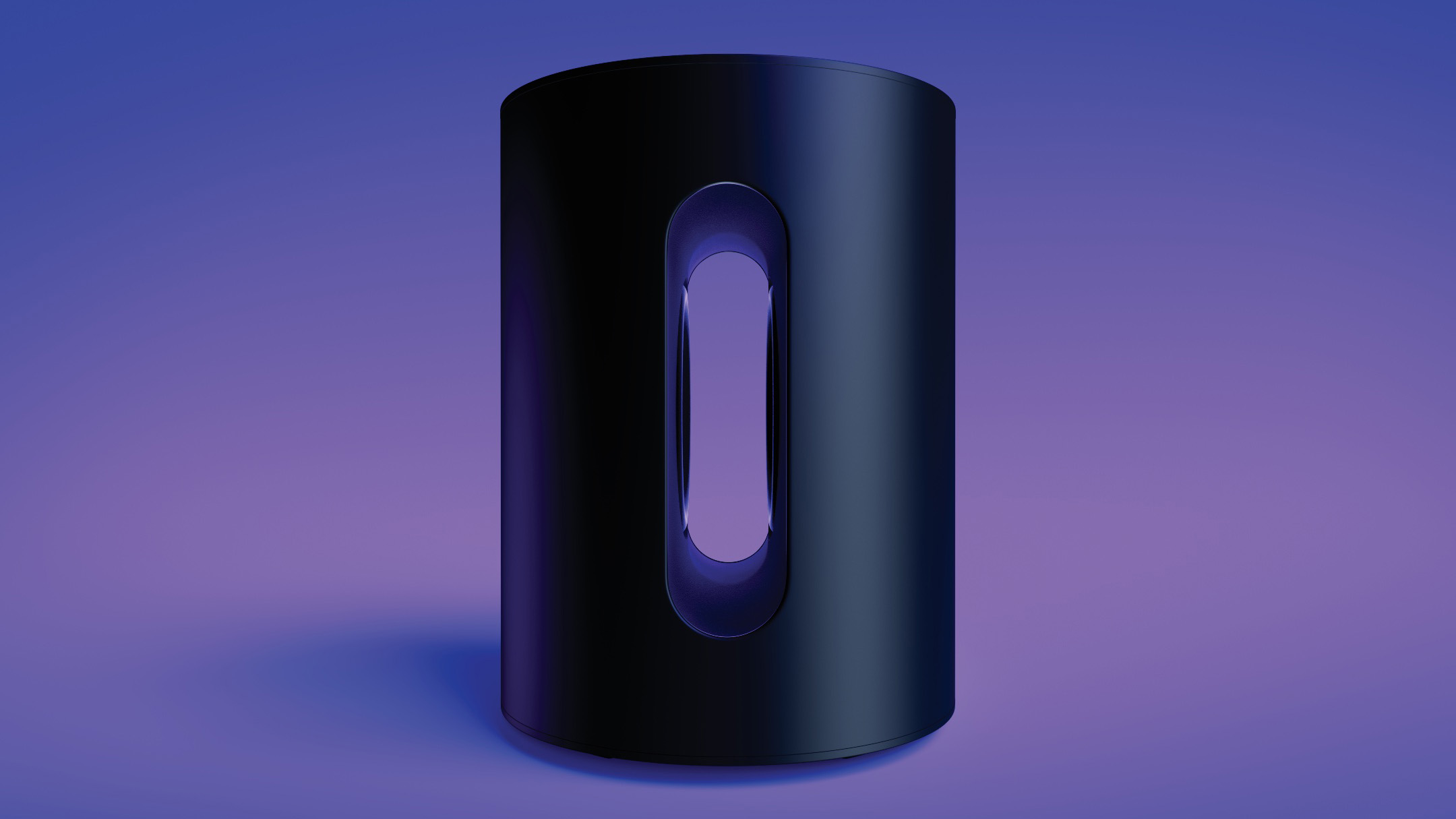
And now it’s here, the Sonos Sub Mini, after a slight delay.
Sonos Sub Mini: Based on its big brother
The Sub Mini builds on the construction of the Sub, but is cylindrical where the Sub is rectangular. The Sub Mini is smaller, with two 6-inch round woofers mounted in the center of the subwoofer, with an opening on each side. Their symmetrical, opposite placement is made to cancel out distortions, and with the pressure chamber you avoid the turbulence from any bass reflex ports. All in all, this should give a cleaner bass.
If our experience with big brother Sub is anything to go by, then you can expect a clean and fine bass from Sub Mini, where the fiercest impact is downplayed in favour of cleaner sound.
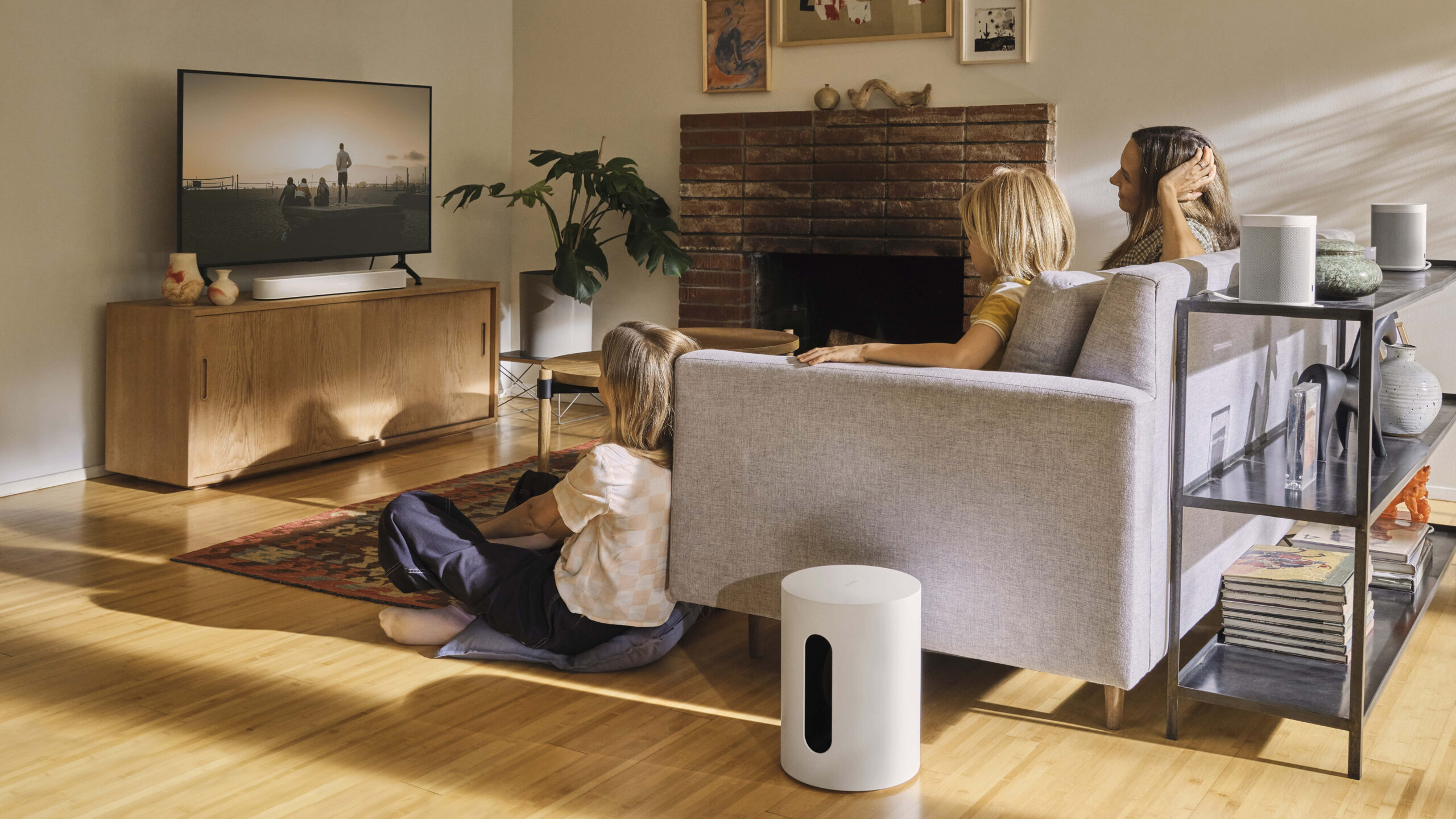
“Small, but powerful”
The goal of the Sub Mini is to make better bass for movies, music and gaming more accessible to more people. After the success of the compact Beam soundbar and the introduction of the only more affordable Ray, it’s time for something more affordable than the Sub, which alone costs almost the same as the big Sonos Arc. One of our favourite soundbars at the price.
Sonos Sub is back in the third generation, now with the option of using two subwoofers in the same room. We have tested!
“Despite its smaller size, the Sub Mini has similar frequency response to the larger Sub. The main difference is how powerful the sound pressure they can achieve. The Sub Mini’s frequency range goes down to 25 Hz, which is the lowest frequency at which we feel it has a significant sound level,” Sam Feine, Sonos audio engineer, tells us in an email.
Sam Feine has had primary responsibility for the development of the Sub Mini from an acoustic standpoint, and is part of the team that thinks out, sketches and develops Sonos’ audio products, and then fine-tunes the sound to perfection.

Why the delay?
We were very interested to hear about the challenges of building a small subwoofer like the Sub Mini. And why has it taken so long? Sam answers:
“Developing a small subwoofer is always challenging. Bass response does not scale linearly with cabinet size, and even small changes in acoustic volume can require significant changes to the drivers and electronics to achieve a good sound experience. When we began the development of the Sub Mini, we knew we wanted a similar frequency response to the Sub, but that we also wanted this in a smaller cabinet with a lower output level than the Sub has. Early in the development we tested many acoustic designs, including bass reflex and passive radiator systems. We ended up with a sealed cabinet which, together with an advanced DSP, gave us a sound product with surprisingly deep frequency response (for the size). The trade-off with a small, sealed cabinet is obviously the maximum sound pressure level. The Sub Mini has more than enough power to provide a rewarding experience for listeners of all types of content (movies, music, games…) but it is not the optimal match for customers who like to listen at very high volume levels or who listen in large rooms. There is Sub a better choice.”
Are there any compromises when using DSP?
“We are fortunate enough at Sonos, in that our speakers, as part of the Sonos system, already have more than enough processing power to use DSP to overcome many problems. This allows us to use digital audio processing, without also including separate DSP hardware. For the same reason, I would not say there is any real disadvantage to using DSP in this product.”
Which speakers does the Sub Mini match?
“Sub Mini is excellent in small and medium sized rooms, and fits perfectly with Beam, Ray, One, One SL, and even the SYMFONISK series for IKEA and Sonos,” says Sam, in response to our question.
Too expensive for Ray?
Although Sonos itself believes the “small but mighty” Sub Mini is a perfect match for both the Beam and Ray, we guess the price tag is still a bit stiff for owners of the Sonos Ray. But we have great faith that it will form a fine system with Beam.
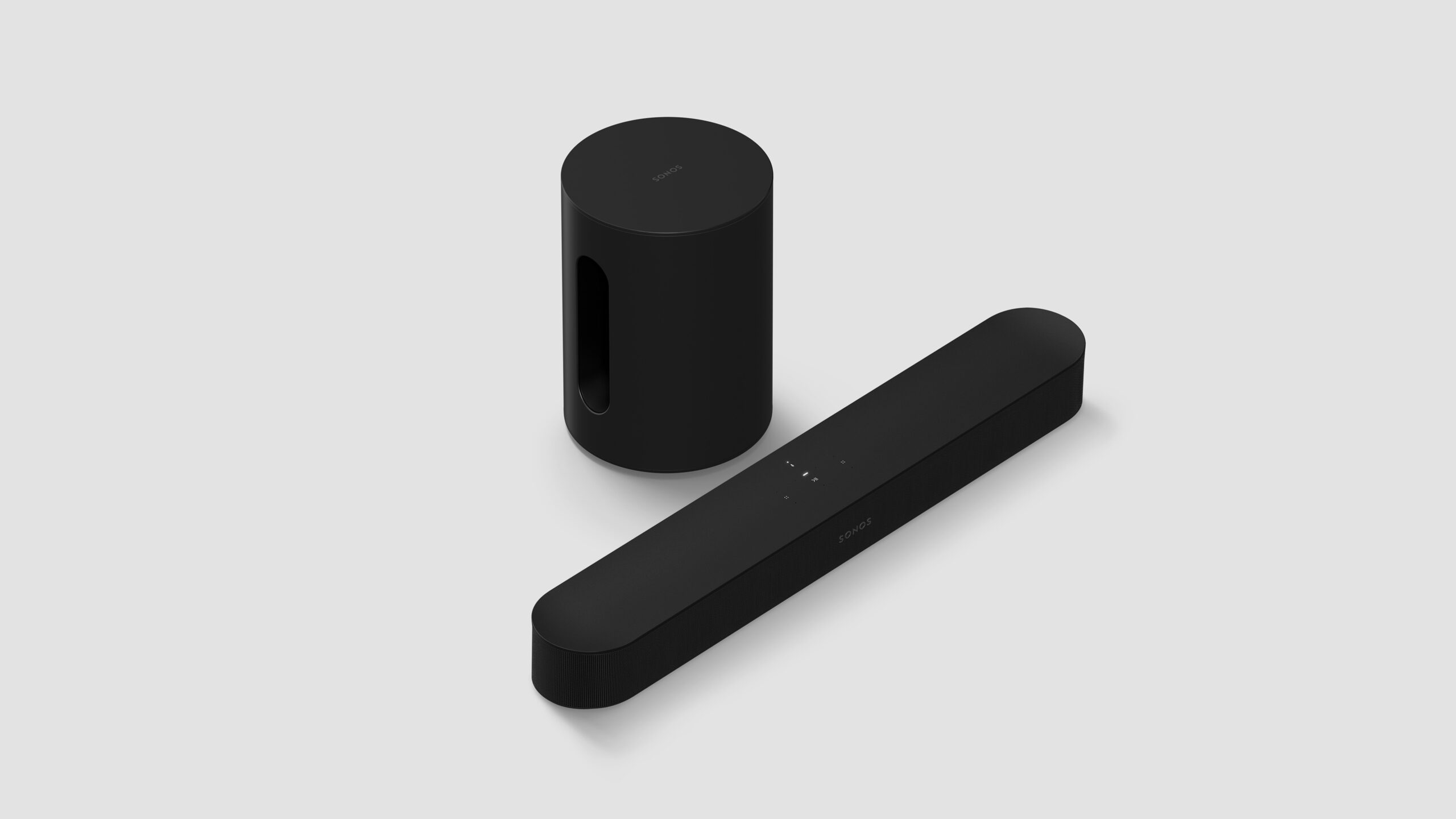
The larger subwoofer is for those who want more
If you can afford the big subwoofer, Sam can:
“The sub is still the best product for customers who want the kind of bass pressure that makes explosions on the screen feel like you’re being punched in the chest.”
Two Sub Mini?
In recent times, you’ve been able to use two Sonos subwoofers in the same sound system, and you can do the same with the Sub Mini. And since two Minis won’t be that much more expensive than one regular Sub, we’re quite curious as to whether it might actually be a slightly better match with the larger Arc, to go for two of the small, than one of the big. We’ll definitely be testing that out when the opportunity arises!
However, we only expect to get our hands on one subwoofer to start with, at launch.
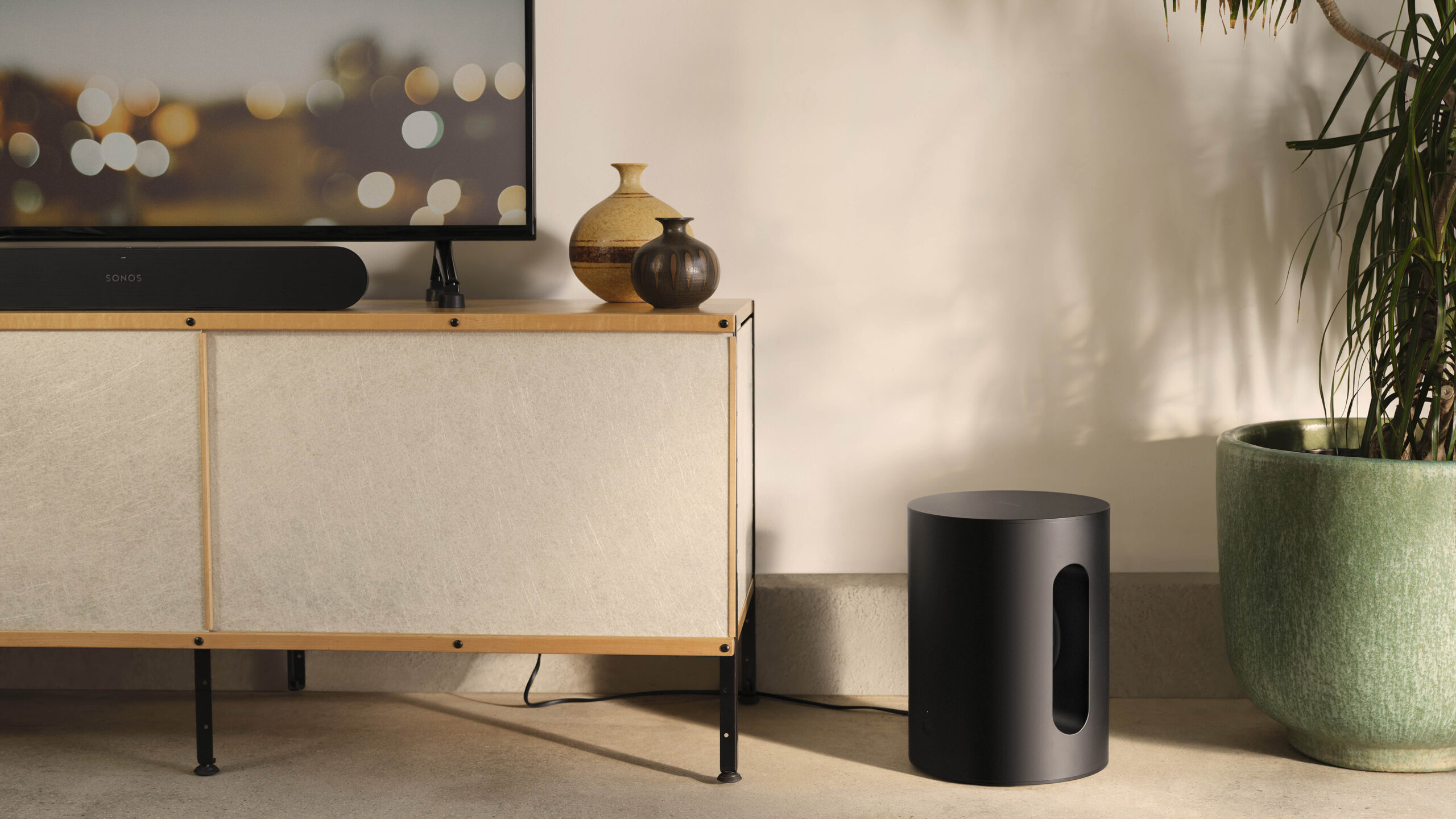
Price and availability
Sonos Sub Mini costs 499 euros, and will be available in stores from 6 October.
More info: sonos.com
Sonos Sub Mini – facts:
Sound
Woofers
Dual 6″ woofers facing each other for a dampening effect.
Amplifiers
Both Class D amplifiers are optimized for the unique acoustic architecture.
Architecture
The sealed cabinet neutralises distortion and improves bass response.
Adjustable EQ
Audio settings are automatically adjusted to balance the Sub Mini and paired Sonos products. Use the Sonos app to manually adjust bass and loudness.
Trueplay
This application measures the acoustics in the room and then fine-tunes the sound. A supported iOS device is required.
Frequency range
Down to 25 Hz
Details
Dimensions
Height: 305 mm
Diameter: 230 mm
Weight
6,35 kg
Surface
Matt, available in black or white
Join button
Press once to add the Sub Mini to the system during configuration, if necessary.
Power and connectivity
Wi-Fi
Connect to Wi-Fi with any router capable of routing on 802.11a/b/g/n.
Low response time
The 5 GHz connection to a Sonos soundbar improves the transmission speed of high quality audio synchronized with the TV.
Ethernet
10/100 port for direct cabling to the router.
Voltage
100-240 V 50/60 Hz internal power supply
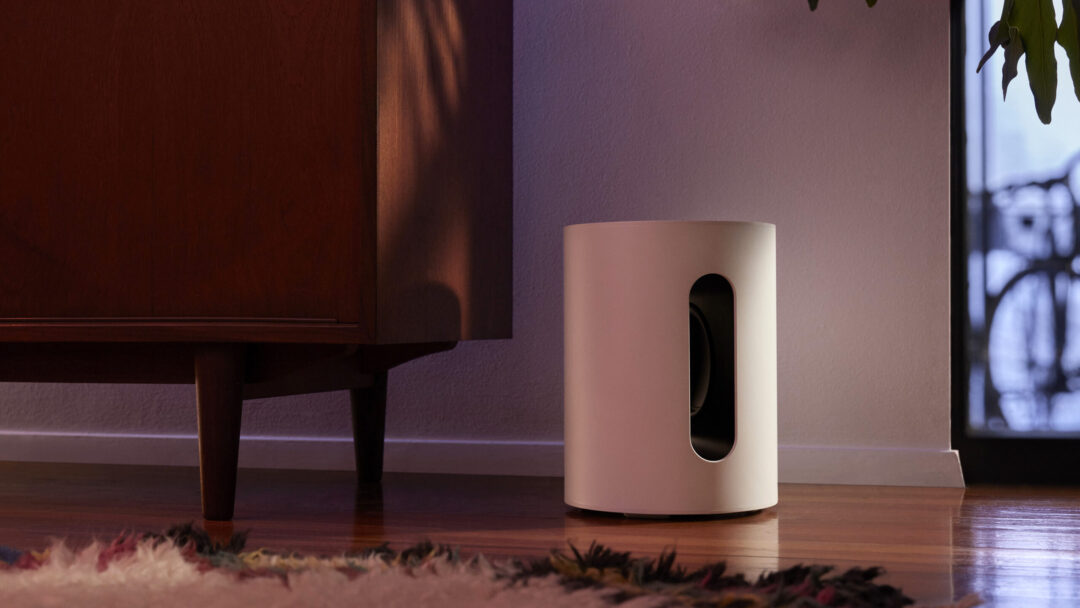

So far Sonos has told us that the Sub Mini doesnt support dual sub configuration, has this changed?
Hope so, that is the solution I had planned using with my Arc